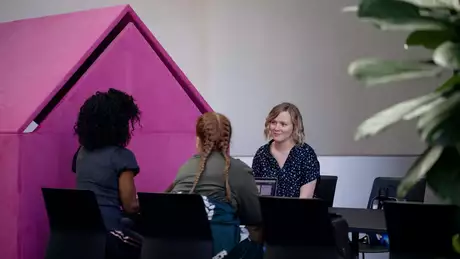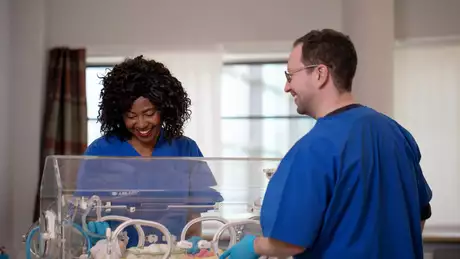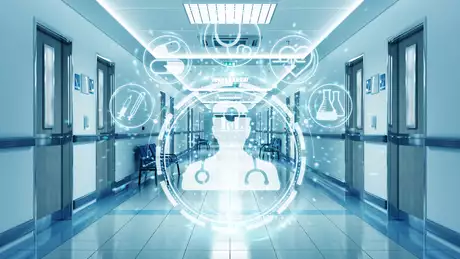
Summer Learnings: Baltic Reed x Circagile Project
Published: 25.09.2024 / Blog / Sustainable and functional materials
This summer has been full of exciting discoveries as part of the Baltic Reed x Circagile project. Working with Arcada UAS and exploring the intersection of sustainability, renewable resources, and collaboration has been an amazing experience.
Here are some of the key takeaways from the project, where we looked at how Baltic reeds could be used for making sustainable plastics, and how two different research initiatives came together for something bigger.
Can Reeds Help with Sustainable Plastic Production?
If you've ever seen reeds growing along the Baltic Sea, you might not know that while many are harvested, they often go unused. This turns them into waste, which got us thinking: what if we could take this underused resource and give it new life?
Incorporating reeds into the production of sustainable plastics ties right into the circular economy, where the goal is to regenerate natural systems. By using reeds, a renewable, unutilised biological raw material, we can cut down on fossil fuel reliance and create eco-friendly alternatives that can even be biodegradable.
Our idea? Mixing reeds with plastic to create sustainable plastics. It not only helps the environment but also makes the production process greener.
How the Projects Came Together: Baltic Reed x Agile Circular Competence Network
This journey wasn’t something we did on our own. We teamed up with the Agile Circular Competence Network (Circagile) to make it happen. Both projects focus on sustainability and circular economy practices, but each brings something unique to the table.
- Circagile works on developing agile methods for sharing knowledge and testing new initiatives across different sectors.
- Baltic Reed focuses on finding new ways to use reed resources, particularly for making sustainable materials like plastics.
Together, these projects are driving innovation in the Baltic region, helping businesses, researchers and educators come together to share knowledge and create eco-friendly solutions.
Study Visit to University of Borås: Hands-on with Sustainable Plastics
One of the highlights of the project was a study trip to the University of Borås in Sweden. We teamed up with University of Latvia and LAB UAS to really get into the hands-on part of the project.
With guidance from Paula Linderbäck, we spent a week in the lab learning how to mix reeds into plastic using micro compounding and injection molding.
Before we got started, we had a safety course with Jonas Hansson, making sure we were all set to work safely in the lab.
Ville Skrifvars showed us how to use the equipment and tweak the process for the best results, and with help from Mikael Skrifvars, we were able to create dog bone-shaped samples for our further mechanical characterisations. These samples were a mix of plastic and treated/un-treated reeds—perfect for analysing how well our ideas were working.
We learned that managing the RPM and temperature during micro compounding was key to making the process run smoothly. It was such an eye-opener to see how everything came together in the lab. This was a crucial step in further developing future plastics according to circular economy principles and opens up opportunities for further collaboration between the private sector, researchers, and educators.
My Student Experience: Growing, Learning, and Experimenting
Being part of the Baltic Reed project was an amasing opportunity as a student. I learned so much, not just about the technical side of things, but also about working with different teams and expanding my network. At Arcada , I worked closely with Laura Montin and Rasmus Björkvall, and through their guidance, we even produced some prototypes for future products made from reed-based materials. It felt great knowing that these prototypes could one day help companies create more sustainable products.
Collaborating on both the Baltic Reed and Circagile projects opened up a lot of new ideas. The way these two initiatives worked together really showed me the power of cross-sector collaboration in solving sustainability challenges.
Final Thoughts: The Power of Teamwork & Innovation
Looking back, the main lesson I learned this summer is that collaboration is essential for creating meaningful change. Both the Baltic Reed and Circagile projects proved that by bringing together different sectors, we can achieve big things in the world of circular economy.
From lab work at the University of Borås to experiments at Arcada, every experience has helped me grow both personally and professionally. I’m more motivated than ever to continue pushing for sustainability and circular solutions in everything I do.
The reeds growing along the Baltic Sea have so much potential. I can’t wait to see how we can continue to turn this untapped resource into valuable, eco-friendly products.
If you’re interested in circular economy, sustainability, or collaboration across borders, feel free to reach out!
Authors: Novenya Gunathilaka Moragoda, Arcada student and Paula Linderbäck, Principal lecturer


